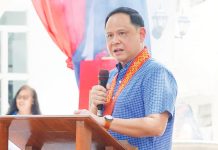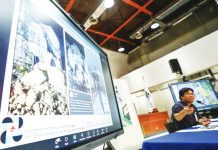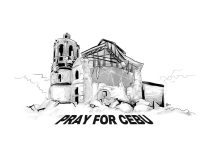
CRITICAL thinking and academic freedom are vital to a thriving, open society — they’re a not just perks but essentials for authentic learning and progress. True critical thinking means more than asking questions; it’s about digging deeper, questioning what we take for granted, weighing evidence, and drawing thoughtful conclusions. At the same time, academic freedom is vital, giving teachers and students the space to explore ideas without fear. Together, these principles build independent thinkers — an invaluable trait in an age of information overload and polarized views.
In higher education, the power of critical thinking lies in moving students beyond memorization. Teaching should inspire students not just to know, the lowest level of learning, but to analyze, synthesize, and thoughtfully assess the information they encounter. Indeed, the late philosopher Richard Paul argued that critical thinking is foundational to all educational pursuits, proposing that “thinking about thinking” enables students to navigate a complex world. Likewise, philosopher Matthew Lipman contended that critical thinking is not a mere academic exercise but a means to cultivate an intellectually rigorous and democratic society. Without critical thinking, education risks devolving into a system of compliance rather than curiosity, producing individuals who may excel at recalling facts but falter at asking the right questions.
However, cultivating critical thinking requires more than just teaching logic and analysis; it necessitates an environment that welcomes diverse perspectives and open discourse. In classrooms that embrace academic freedom, students can encounter differing viewpoints, which fosters intellectual resilience. Neil Gross and Solon Simmons’s study on academic freedom highlighted how faculty members create a climate where students feel free to explore challenging ideas, even if those ideas diverge from dominant societal narratives. When students are given the space to question, they develop a capacity for empathy and an appreciation for complexity—skills indispensable in a world that often defaults to simple answers for complicated problems.
Yet, there are formidable challenges to nurturing these skills in today’s educational landscape. Many institutions increasingly focus on market-driven outcomes, such as producing job-ready graduates. This pragmatic orientation, while important, can risk sidelining the higher goal of cultivating thoughtful, informed citizens. The recent surge in “employability” programs and “market-aligned curricula” has sometimes reduced education to a credential factory. Students, particularly in fields where critical thinking is paramount, may feel pressured to view their education primarily as a pathway to employment rather than a journey of intellectual growth. While job preparation is undeniably significant, it should be within the broader educational mission, which history has proven to have sustainably benefited societies.
Academic freedom, a cornerstone of higher education, is facing fresh challenges. Universities are increasingly cautious about offending diverse groups, which some scholars argue leads to a “sanitization” of campus discussions. In 2006, the American Association of University Professors emphasized that true academic freedom means having the right to question established norms—especially in politically sensitive fields. As our world becomes more connected and ideologically varied, universities must balance respect for different beliefs with a commitment to open, fearless inquiry. But this is a delicate balance, often complicated by pressures to conform. (To be continued)/PN







